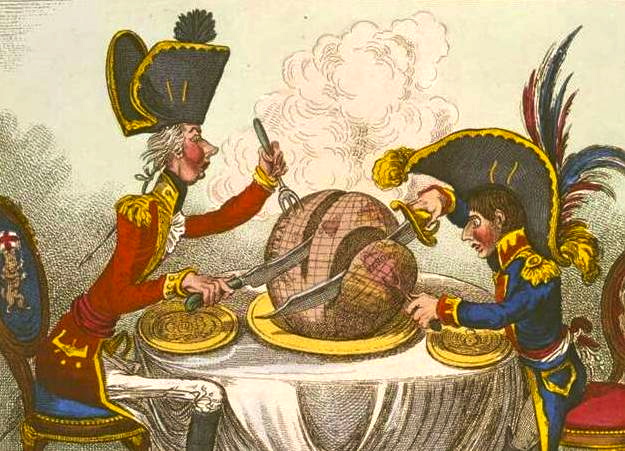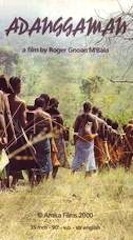
| |
Director: Roger Gnoan M'Bala, 2000
In West Africa during the late seventeenth century, King Adanggaman leads a war against
neighboring tribes, ordering his soldiers to torch enemy villages and take captives to
sell to European slave traders. Ossei, a strong-willed young man,
sets out to rescue his mother when their village is raided. This Ivoirian film addresses a rarely acknowledged though controversial aspect of the history of slavery: the active
role of Africans in supplying human cargo for the Atlantic slave
trade.
© New Yorker Films
|
|
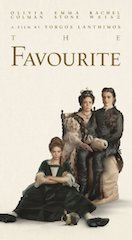
| |
Director: Yorgos Lanthimos, 2018
A frail and childless Queen Anne occupies the throne while England is war. Her close friend Sarah Churchill, Duchess of Marlborough, oversees matters of state in her stead while tending to Anne's ill health and mercurial temper. A newly-arrived servant, Abigail, from an impoverished aristocratic family, charms Sarah who takes her under her wing. Through her position in the court and proximity to the monarch, Abigail sees a chance to regain her status and, as politics and war distract Sarah, she steps into the breach to become the Queen's companion and confidante.
© Fox Searchlight
|
|
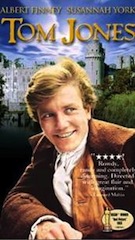
| |
Director: Tony Richardson, 1963
This academy-award winning film is set in eighteenth-century England and follows the life of a foundling who is taken in and raised as the son of an
English gentleman. In adulthood Tom becomes a likeable, devil-may-care chap,
with an inability to resist the advances of any attractive lady. The film
was based on the 1749 novel by Henry Fielding, but is as much a reflection
of the hedonistic 1960s when it was released.
© MGM/UA
|
|
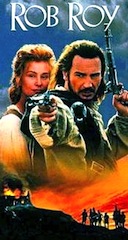
| |
Director: Michael Caton-Jones, 1995
This film takes place in Scotland in 1713, when Highland farmer and clan leader
Rob Roy MacGregor is forced to go into debt to the duplicitous aristocrat Marquis
of Montrose to help his clan survive a harsh winter. When Montrose's associate plots
to exploit MacGregor and his family and take the money for himself, the rugged
Highlander must take courageous action to preserve his integrity and honor. An
engaging period piece with excellent acting and breathtaking scenery. © MGM/UA
|
|
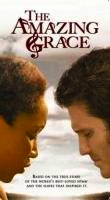
| |
Director: Jeta Amata, 2006
The subject of this moving Nigerian film is the life and misdeeds of Captain John Newton, the
infamous English slave trader who in later life repented, became an Anglican clergyman, and
penned the lyrics of the popular hymn "Amazing Grace". The plots follows Newton while he
was in West Africa and his interaction with one particular slave woman who forced him to see
the humanity of his victims as well as his own.
© Nu Metro Productions
|
|
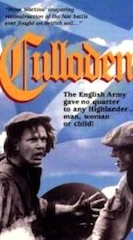
| |
Director: Peter Watkins, 1964
This docudrama originally produced for British television reenacts the infamous
Battle of Culloden in 1746 that pitted Jacobite rebels against the forces of the
Hanoverian crown. An imaginative historical presentation in which the director/narrator
interviews many of the battle's participants as if television cameras existed in that
time. A 1960s anti-war film, though an unconventional one, that questions the nature
of power, hierarchy, and obedience.
© New Yorker Films
|
|
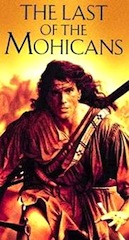
| |
Director: Michael Mann, 1992
This film is set during the Seven Years War in the frontier areas of New York west of
the Hudson River. While French and British forces and their Indian allies fight for
control over North America, the colonists struggle to defend their settlements and
families. The plot follows "Hawkeye", a European settler raised by the dying
tribe of Mohicans, and his interactions with the British and Indians.
Based loosely on the 1826 book by James Fenimore Cooper.
© Twentieth Century Fox
|
|
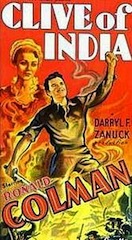
| |
Director: Richard Boleslawski, 1935
Ronald Colman stars as Robert Clive, a humble clerk in the East India Company, who is
frustrated by his lack of advancement and transfers to the military arm of the Company, where he
excels. Clive's leadership and gift for manipulation strengthened Britain's hold over India, allowed
him to amass great personal wealth, and made him one of the first heroes of the British Empire.
© 20th Century Pictures
|
|
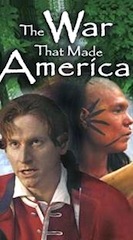
| |
Directors: Ben Loeterman and Eric Stange, 2006
This docudrama miniseries tells the story of the Seven Years War that began along the
western frontier of Britain's North American colonies and spread to Canada and ultimately
around the world. The story follows George Washington, then a brash and ambitious young
officer hoping to make his reputation in the army. It also focuses on the critical military
importance and strategic diplomacy of Indian tribes in the conflict between the British
and French for the expansion of their colonial empires.
© WGBH
|
|
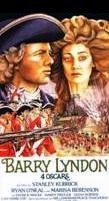
| |
Director: Stanley Kubrick, 1975
In a small village in eighteenth-century Ireland, Redmond Barry is a young farm boy in
love with his cousin Nora. When she becomes engaged to a British captain, Barry
challenges him to a duel and wins. He then flees to Dublin and, with no other
alternative, assumes a false name ("Barry Lyndon") and joins the army to fight in the Seven Years
War. An excellent period film that brings to life the privileged world of the
Anglo-Irish Protestant ascendancy. Based loosely on the 1844 picaresque
romance by William Thackeray. © Warner Home Video
|
|
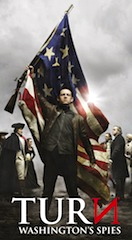
| |
Creator: Craig Silverstein, 2014
This AMC television series is set in Suffolk Country, Long Island, during the early years
of the American war for independence. Abraham Woodhull, a farmer from the town of Setauket,
and his childhood friends form a spy ring in the service of General Washington’s rebels.
They report on the movement of British forces while trying to avoid the suspicions of
American loyalists in their own communities who are on the lookout for rebel spies and
sympathizers.
© AMC
|
|
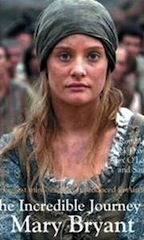
| |
Director: Peter Andrikidis, 2005
This miniseries tells the story, based on real events, of a young and destitute Cornwall
woman convicted of theft and transported to the penal colony at Botany Bay in 1788. The
hardships of the long sea journey and life in the penal colony are graphically depicted as is
the indifference of British officials to the reckless behavior and desperation of the transported
convicts. A harrowing portrayal of eighteenth-century English criminal justice as well as the
earliest European settlement of Australia.
© Bridge Entertainment
|
|
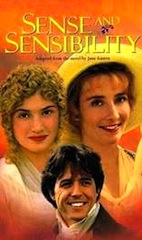
| |
Director: Ang Lee, 1995
When Mr. Dashwood dies, he must leave the bulk of his estate to
the son by his first marriage, which leaves his second wife and
three daughters in strained circumstances. They are taken in by
a kindly cousin, but their lack of fortune affects the
marriageability of both practical Elinor and romantic Marianne.
Based on the 1811 novel by Jane Austen, this film provides insight
into the social relations and habits of Britain's landed gentry.
© Columbia/TriStar
|
|
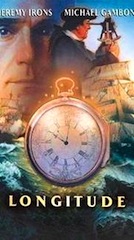
| |
Director: Charles Sturridge, 2000
This miniseries tells of the decades-long effort by eighteenth-century clockmaker
John Harrison to solve the elusive problem of measuring longitude at sea. In 1714
Parliament had offered a generous reward to anyone who solved this problem, and
Harrison devoted his life to finding the solution. Thousands of sailors perished at sea
before Harrison's triumph changed history. A fascinating study of eighteenth-century
British politics, overseas expansion, and clashing egos in the arenas of science and invention.
© A&E Home Entetainment
|
|
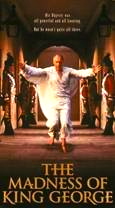
| |
Director: Nicholas Hytner, 1994
This film tells the true story of King George III's battle with dementia
in 1788 and the political crisis it caused. As the king was subjected to
experimental treatments for insanity, Prime Minister William Pitt fought for
his own political survival as he attempted to prevent Parliament from
naming the King's son as regent. An excellent portrayal of the personality
of George III and the political role of the Hanoverian monarchy in the eighteenth
century. Based on the play by Alan Bennett. © MGM/UA
|
|
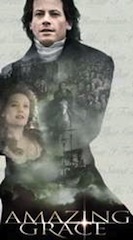
| |
Director: Michael Apted, 2006
An inspiring but highly romanticized portrayal of the effort by William Wilberforce to bring
an end to the slave trade in Britain and its empire. As a young MPs, Wilberforce and his friend
William Pitt the younger face daunting odds against the economic interests of the British sugar and
slave trades and their influence in Parliament. The film captures well Wilberforce's tenacity and
the power of his oratory and religious faith during the decades-long campaign to abolish slavery.
© Bristol Bay Productions
|
|
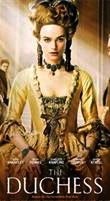
| |
Director: Saul Dibb, 2008
This costume drama chronicles the tempestuous life of Georgiana, Duchess of Devonshire. The
duchess was a vibrant beauty and the center of fashion and gossip in English aristocratic society
during her day. The film focuses on her unhappy marriage, her romantic liaisons, and her involvement
in Whig politics. It also reveals the duties and limitations of aristocratic women's lives in the
late eighteenth century. Based on the biography by Amanda Foreman.
© Paramount Vintage
|
|
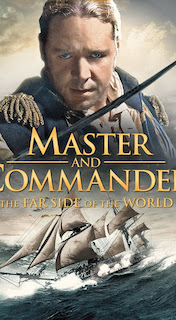
| |
Director: Peter Weir, 2003
This extremely authentic film is based on two of the novels from the popular series
by Patrick O'Brian. The story follows the exploits of British naval hero Captain
Jack Aubrey ("Lucky Jack") as he leads the crew of HMS Surprise around the tip of South
America in pursuit of the French warship Acheron. The fast-paced story and attention
to historical detail provide a compelling view of naval warfare in the age of Nelson.
© Fox Searchlight
|
|
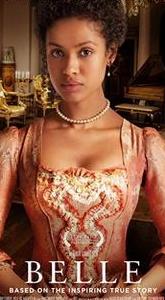
| |
Director: Amma Asante, 2013
This film is based on the true story of Dido Elizabeth Belle Lindsay, the daughter of a Scottish naval officer and an African slave. Dido was brought from the West Indies to Britain as a child and raised as an aristocratic lady on the Kenwood estate in Hampstead under the care of her uncle, Lord Mansfield, the Lord Chief Justice of England and Wales. The plot revolves around Dido adapting to her unique role as a mixed-race woman in British high society and her uncle's judicial ruling in a case that would determine the future of the slave trade.
© BFI
|
|
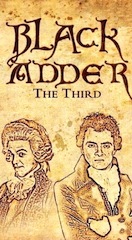
| |
Director: Mandie Fletcher, 1987
The third season of the British sitcom, Black Adder, takes place in the early 19th century during the Regency. A dimwitted and profligate George, Prince Regent of Wales, is aided by his cynical and conniving butler, Edmund Blackadder, a former aristocrat. While heaping dry insults upon all around him, Blackadder tries to use his proximity to the throne to enrich himself while navigating through the culture of patronage and corruption characteristic of the age.
© BBC
|
|
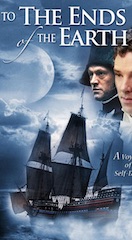
| |
Director: David Attwood, 2005
A gripping tale of a group of British migrants on a six-month voyage to Australia in the early nineteenth century. Along the way, young Edmund Talbot, an aspiring civil servant traveling to take a post under the governor of New South Wales, keeps a journal recording his impressions of the crew and his fellow passengers. Filmed at sea aboard a replica period ship, this TV series captures well the rigors, discomfort, tedium and terror of an antipodean sea voyage in the Age of Sail. Based on the trilogy of novels by William Golding.
© BBC/Power
|
|
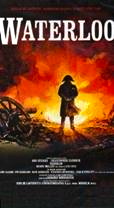
| |
Director: Sergei Bondarchuk, 1970
This lavish and authentic Russian-Italian film recreates Napoleon Bonaparte's return
from his first exile in Elba and subsequent campaign against an Allied army in Belgium, culminating in
his final defeat at Waterloo in 1815. An ambitious attempt to bring to the screen the
complexity and drama of one of the most important battles in British and European
history. Excellent portrayals of the French emperor (played by Rod Steiger) and his British adversary,
the Duke of Wellington (played by Christopher Plummer). © Castaways Pictures
|
|
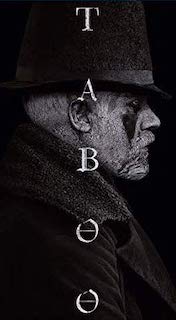
| |
Directors: Kristoffer Nyholm and Anders Engström, 2017
In 1814, adventurer James Delaney returns to London to settle family affairs and rebuild his late father's shipping empire. His inheritance, Nootka Sound, a remote harbor on the Pacific coast between British Canada and the United States, is highly desired by the British government and the East India Company, and both will stop at nothing to obtain it. A dark and gruesome depiction of political and business corruption, violence, and the misery of the working classes in early 19th-century London. © BBC
|
|

